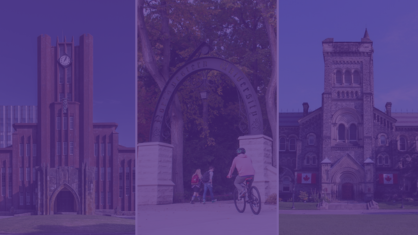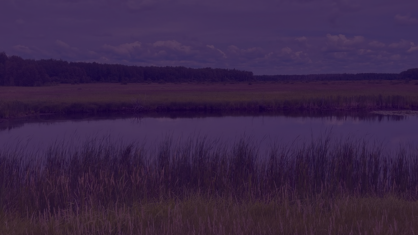Climate Action at Northwestern Buffett
Northwestern University has sent delegations of faculty and graduate students to attend the United Nations Framework Convention on Climate Change (UNFCCC) Conference of the Parties (COP) since 2021. Northwestern's delegation to COP28 is supported by the Northwestern Roberta Buffett Institute for Global Affairs.
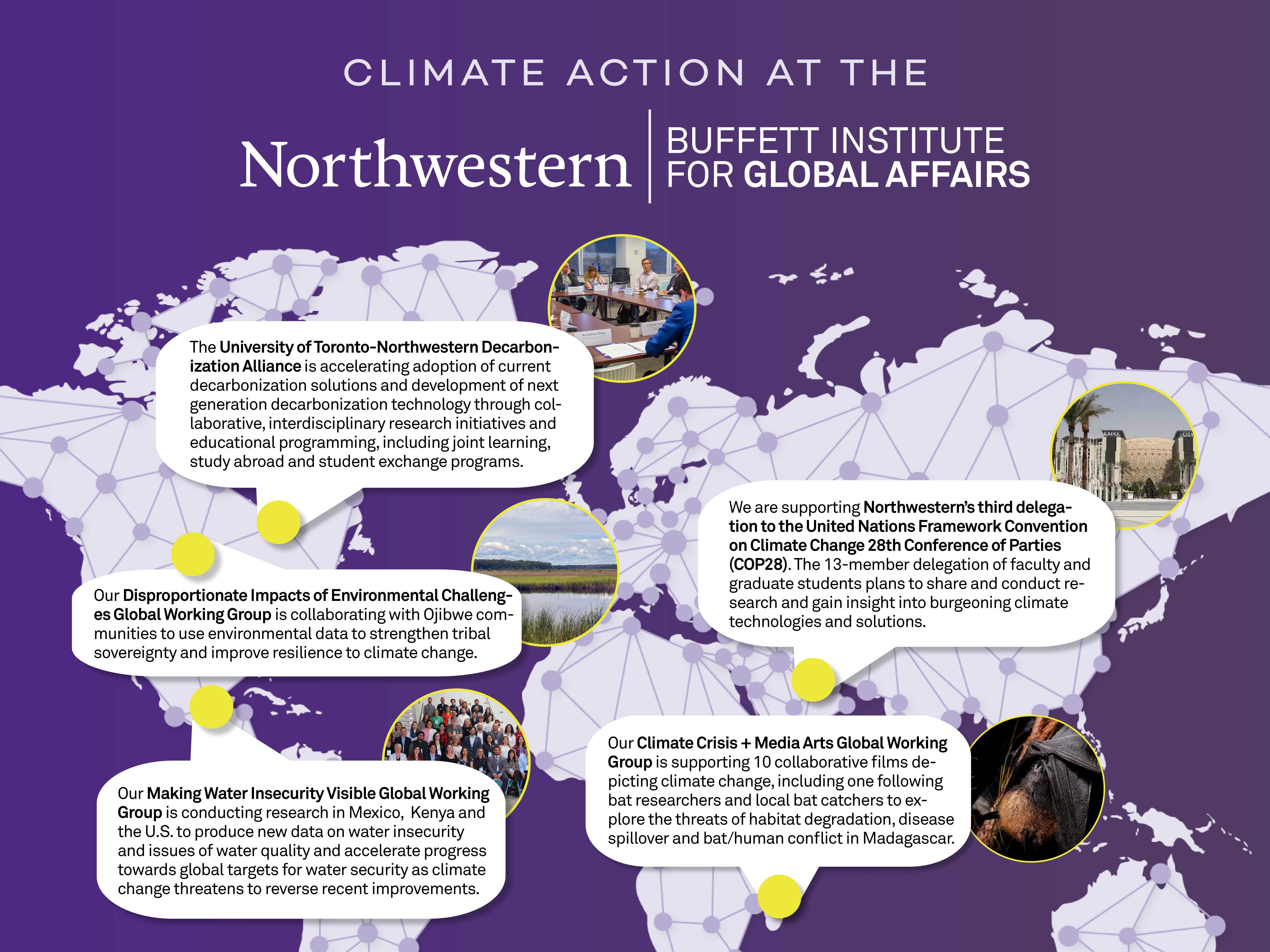
Climate Action Research
The Buffett Briefs below illustrate how our Global Working Groups are tackling the climate change through collaborative research across disciplines and geographies.
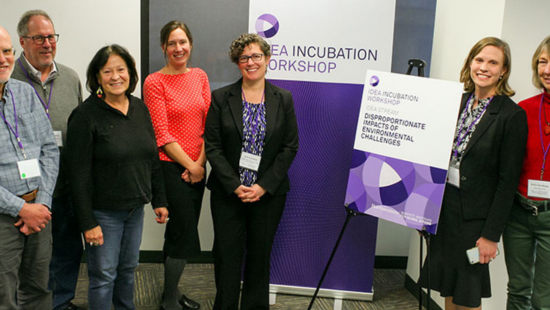
Disproportionate Impacts of Environmental Challenges
Collaboration between Indigenous peoples and the scientific community has emerged as imperative for developing effective approaches to mitigating the impacts of climate change on communities worldwide.READ
CLIMATE CRISIS + MEDIA ARTS
Media will play a critical role in shifting public perceptions of climate change from an impending threat to a present emergency. Yet today’s depictions of the climate crisis primarily illustrate possible environmental futures as opposed to depicting how people and animals are living and dying within a changing climate right now.READ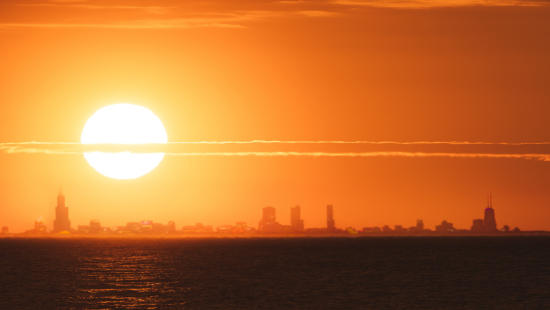
DEFUSING DISASTERS
Climate change is propelling heat waves to new extremes. Governments must build resilience to protect vulnerable communities. A partnership in Chicago shows promise for producing a globally applicable but locally informed model.READ
Making Water Insecurity Visible
Over one in four people worldwide still experience water insecurity, and climate change threatens to reverse recent improvements. A new interdisciplinary, transnational research collaboration is accelerating progress towards global targets for water security.READ
Thought Leadership at COP28
Events at COP28 featuring members of Northwestern's delegation
Exploring the Gendered Impacts of Climate Change | Dec. 4 at 15:00
Diana Elhard, a member of Northwestern's virtual delegation to COP28 and a PhD candidate in the Department of Political Science at Northwestern, will participate in this event as the discussant for the third of three sections, which will be focused on gender and the negotiations at COP28. Her research focuses on climate finance negotiations, and she will discuss how hybrid attendance options have significant gendered elements.
- Date and time: December 4 from 15:00 to 16:00 GMT+4
- Location: Blue Zone, Monash University Pavilion, TA1
- More information >>
Decarbonization Ecosystems: The Impact of University Partnerships | Dec. 9 at 18:30
Kimberly Marion Suiseeya, Buffett Faculty Fellow and Associate Professor of Political Science at Northwestern University, will participate in this panel hosted by the U7+ Alliance of World Universities, the first coalition of university presidents aimed at defining concrete actions universities can take to collectively address global challenges in coordination with government leaders in G7 countries and beyond. Northwestern serves as the U7+ Alliance's Secretariat.
The panel will discuss real life examples of how universities are working with communities and industry to support 2050 net zero emission targets through various research and conversations in the fields of innovation, policy, buildings and strategic partnerships. The panel will also shed light on the role of universities in driving social justice, equity and youth leadership and ensuring no one is left behind in the energy transition. This panel features the University of Toronto's 46-partner decarbonization project, decarbonization guidelines from the Italian University Network (RUS) and the Climate Leadership Network's 450+ institution decarbonization plans, and the United Kingdom Universities and U7+ Climate Network leadership initiative.
Unleashing Innovation: How Universities Can Drive Progress Towards Net-Zero | Dec. 10 at 11:00
Stella Fors, a PhD candidate in the Department of Chemistry at Northwestern University, will participate in this panel discussion focused on innovation and the role of universities in meeting the needs of communities and industry to achieve net-zero 2050 targets. More and more countries are committing to achieve zero net emissions by the middle of this century and to strengthen their nationally determined contributions by 2030. Today, more than 139 countries and unions, including China, the United States and the European Union, covering about 83% of global emissions, have announced this zero net emissions target. Universities have a key role to play.
- Date and time: December 10 from 11:00 to 13:00 GMT+4
- Location: Blue Zone, Higher Education Pavilion TA1-120
- More information >>
Perspectives on the Role of Universities in the UNFCCC | Dec. 10 at 13:00
There has been significant growth in participation of universities at UNFCCC events, specifically the COPs, bringing new perspectives from academics and young researchers from a variety of disciplines across the social sciences, natural science and engineering fields. Kimberly Marion Suiseeya, Buffett Faculty Fellow and Associate Professor of Political Science at Northwestern University, will participate in this panel discussion exploring the opportunities, responsibilities and challenges of university involvement in the UNFCCC. Perspectives from communities inside and outside of academia will come together to envision the contribution of universities to UNFCCC activities.
If Climate Change Is a Shark, Water Is Its Teeth | Dec. 11 at 16:00
Sera Young, co-lead of our Making Water Insecurity Visible Global Working Group and Associate Professor of Anthropology at Northwestern, and her collaborators will present "If climate change is a shark, water is its teeth: How water insecurity data can mobilize action" at the International Union for the Conservation of Nature (IUCN) Pavilion.
Water insecurity—too much, too little or poor quality water—is a global crisis that is exacerbated by the effects of climate change, including changing temperature and precipitation patterns. However, traditional measurements of water insecurity have not captured human experiences with water access and use, but have instead measured “provider-side” indicators (e.g., per capita water availability). As such, many of the impacts of climate on human well-being have been invisible. With the advent of the first globally suitable “user-side” water indicator, the Water InSecurity Experiences (WISE) Scale, we can better see how climate change shapes problems with water access, use, and reliability.
In this session, the presenters will reveal the first-ever picture of how water insecurity experiences covary with climate events, using the first nationally representative geospatial data on water insecurity from 25 countries in the Gallup World Poll. They will lay out a framework for how climate change and water insecurity impact mental health, physical health and nutrition, using burgeoning evidence from around the world. They will conclude by describing how water insecurity data have been used to advocate for policy and infrastructural change, using examples from Australia, Kenya and Mexico.
- Date and time: December 11 from 16:00 to 17:15 GMT+4
- Location: "Unite for Nature" Pavilion in the Blue Zone
- Watch the recording >>
This event was organized with the support of the Paula M. Trienens Institute for Sustainability and Energy at Northwestern.






